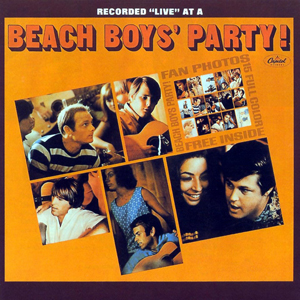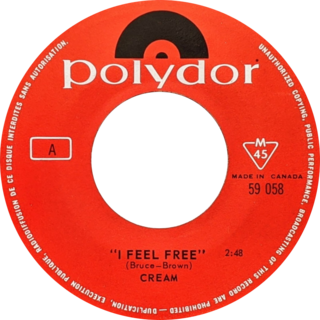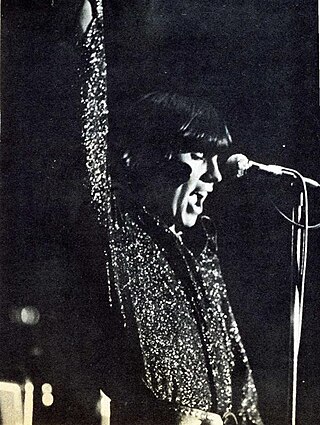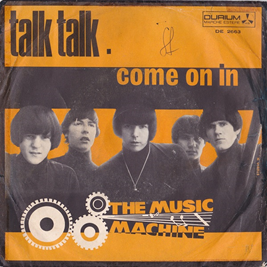
Beach Boys' Party! is the tenth studio album by the American rock band the Beach Boys, and their third in 1965, consisting mostly of cover songs played with acoustic instruments. It reached No. 6 in the US and No. 3 in the UK. The album spawned one single, a cover of the Regents' "Barbara Ann", which reached No. 2 in the US and No. 3 in the UK, and was their highest-charting British single to that point.

"Dirty Water" is a song by the American rock band The Standells, written by their producer Ed Cobb. The song is a mock paean to the city of Boston, Massachusetts, and its then-famously polluted Boston Harbor and Charles River.

The Hudson Brothers were an American musical group formed in Portland, Oregon, consisting of brothers Bill, Brett and Mark Hudson. They were discovered by a record producer while recording music at a local studio, and offered a recording contract. After releasing several garage rock singles in the late 1960s as the New Yorkers, the group began releasing material under the names Everyday Hudson, and Hudson.

The Music Machine was an American rock band formed in Los Angeles, California in 1966. Fronted by chief songwriter and lead vocalist Sean Bonniwell, the band cultivated a characteristically dark and rebellious image reflected in an untamed musical approach. Sometimes it made use of distorted guitar lines and hallucinogenic organ parts, punctuated by Bonniwell's distinctively throaty vocals. Although they managed to attain national chart success only briefly with two singles, the Music Machine is today considered by many critics to be one of the groundbreaking acts of the 1960s. Their style is now recognized as a pioneering force in proto-punk; yet within a relatively short period of time, they began to employ more complex lyrical and instrumental arrangements that went beyond the typical garage band format.

"I Feel Free" is a song first recorded by the British rock band Cream. The lyrics were written by Pete Brown, with the music by Jack Bruce. The song showcases the band's musical diversity, effectively combining blues rock with psychedelic pop.

"I Put a Spell on You" is a 1956 song written and recorded by "Screamin' Jay" Hawkins. The selection became a classic cult song, covered by a variety of artists. It was Hawkins' greatest commercial success, reportedly surpassing a million copies in sales, even though it failed to make the Billboard pop or R&B charts.

"I Can Hear Music" is a song written by Jeff Barry, Ellie Greenwich and Phil Spector for American girl group the Ronettes in 1966. This version spent one week on the Billboard Pop chart at number 100. In early 1969, the Beach Boys released a cover version as a single from their album 20/20 (1969), peaking at number 24 in the US.
Cherokee Studios is a recording studio facility in Hollywood founded in 1972 by members of 1960s pop band The Robbs. Cherokee has been the location of many notable recordings by such artists as Steely Dan, David Bowie, Journey, Toto, Michael Jackson, Van Halen, Guns N' Roses, The Cars, Foreigner, Tom Petty and the Heartbreakers, Hall and Oates, Devo, Queens of the Stone Age, X, Mötley Crüe, "Weird Al" Yankovic, Dokken, John Mellencamp, Melissa Etheridge, and The Replacements.

"I'm a Man" is a song written by Steve Winwood and record producer Jimmy Miller. It was first recorded in 1967 by the Spencer Davis Group; Winwood sang lead vocals and played keyboards. The song was a hit in the United Kingdom and the United States, reaching No. 9 and No. 10, respectively. It has been recorded by many other performers over the years, most successfully by Chicago, whose version charted at No. 8 in the UK in 1970 and No. 49 in the US in 1971.

"Rag Doll" is a popular song written by Bob Crewe and Bob Gaudio. It was recorded by the Four Seasons and released as a single in 1964.

Bruce Robb is an American musician, record producer, engineer, and music supervisor. He is most recognized for his time as a member of "The Robbs" during the 1960s, then as a founder of Cherokee Studios in the 1970s; followed by decades of producing, engineering and recording with artists like Mos Def, Macy Gray, Henry Rollins, Steve Vai, The Lemonheads, John Mellencamp, Steve Cropper, Ringo Starr, Etta James, Art Garfunkel, Rod Stewart, Del Shannon, and Wilson Pickett amongst others.
"I Can't Remember" is a song written by Bill and Bette Anderson, and recorded as a single by American country artist Connie Smith. It was produced by Bob Ferguson and was released on her 1965 album Cute 'n' Country. The song was released in April 1965, reaching the Top 5 on the Billboard country music chart and becoming her third Top 10 hit. It was Smith's third single released under the RCA Victor label.

"Who Do You Love?" is a song written by American rock and roll pioneer Bo Diddley. Recorded in 1956, it is one of his most popular and enduring works. The song represents one of Bo Diddley's strongest lyrical efforts and uses a combination of hoodoo-type imagery and boasting. It is an upbeat rocker, but the original did not use the signature Bo Diddley beat rhythm.

New Colony Six is an American garage and later soft rock band from Chicago, formed in 1964. Original members were Ray Graffia Jr. (vocals), who was born March 28, 1946; Chic James (drums); Pat McBride (harmonica); Craig Kemp (organ); Wally Kemp (bass); and Gerry Van Kollenburg (guitar), who was born June 26, 1946. Ronnie Rice replaced Craig Kemp in 1966. There were numerous changes in the lineup over the years. Richie Unterberger characterized the group's sound as "a poppier American Them with their prominent organ, wobbly Lesley-fied guitar amplifications, and rave-up tempos", later devolving into "a cabaret-ish band with minor national hits to their credit by the end of the 1960s." Like Paul Revere & the Raiders - with whom NC6 shared a two-flat before either band hit the charts or knew that the other had nearly identical stage wear, they wore colonial outfits on stage.
The Skatt Bros. were a band from Los Angeles, formed in 1979. At first they were compared to bands like the Village People for parallels in music on their first album, but later returned to their more rockish roots with the release of their second album titled Rico and the Ravens, issued in Australia only.

Brenda, That's All is the seventh studio album by American singer Brenda Lee. The album was released October 15, 1962 on Decca Records and was produced by Owen Bradley. It was the second of two studio albums released in 1962 and included two Top 10 hit singles on the Billboard Hot 100 between 1962 and 1963.

"Because" is a song recorded by English rock band The Dave Clark Five from their third studio album American Tour (1964). The song was produced by Adrian Clark, the song was originally the B-side to "Can't You See That She's Mine" in the UK.
Thundermug was a Canadian rock band that was active from 1970 to 1976 and from 1991 to 2001. They released two top 40 Canadian singles and five studio albums.

"Talk Talk" is the debut single of American garage rock band the Music Machine. It was released in November 1966, and produced the band's only Top 20 hit on the Billboard Hot 100. The song was included on their debut album, (Turn On) The Music Machine.
"The People in Me" is a song by the American garage rock band the Music Machine, written by Sean Bonniwell, and first released as a track on their debut studio album (Turn On) The Music Machine in December 1966 on Original Sound Records.















